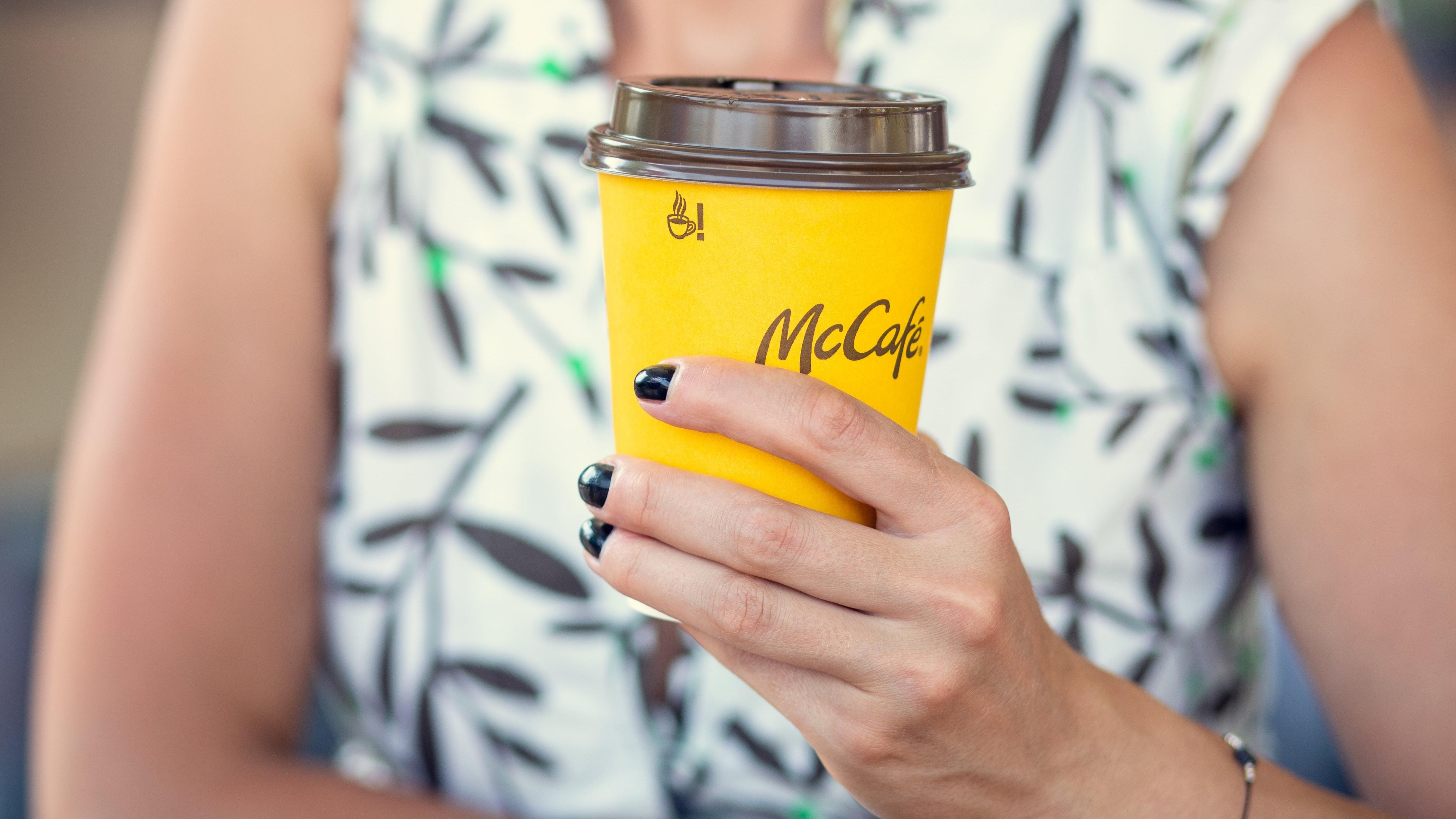There's A New McDonald's Coffee Lawsuit
This new case reminds us that the original McDonald's coffee lawsuit wasn't as it seemed.
Unfortunately, we have yet another reason to double-check our coffee cups before taking a sip. Insider reports that a woman in Alabama has filed a $13 million lawsuit against McDonald's after she was served a cup of coffee containing harmful chemicals that damaged her throat and organs. According to the woman, after she realized that what she had consumed was in fact chemicals, McDonald's staff refused to let her see the label on the chemical bottle or call 911 on her behalf. The lawsuit alleges that even after the woman called 911 herself, the workers refused to let emergency responders see the bottle.
While it has not yet been determined whether this woman will be awarded the damages she's seeking from McDonald's, there's precedent for McDonald's to make huge payouts for drink-related mistakes. The lawsuit listed a series of other instances of chemicals making their way into McDonald's lattes, iced tea, hot chocolate, and soda. And of course the original McDonald's "hot coffee lawsuit" is one of history's most famous—even though people often get the details wrong.
What really happened during the 1994 McDonald’s hot coffee lawsuit
Liebeck v. McDonald's is often held up by critics as a case of a frivolous lawsuit, a high-profile example of American litigiousness and greed. "Of course the coffee was hot," some might say about the woman who sued the fast food giant over the temperature of her beverage. "What was she expecting?"
But the truth is that McDonald's really was serving coffee at unusually high temperatures. According to the American Museum of Tort Law, while most restaurants were keeping coffee around 160 degrees Fahrenheit, McDonald's coffee could be kept as hot as 190 degrees. At that heat level, it only takes three seconds for a spilled liquid to cause third-degree burns on a person's skin.
Stella Liebeck, the 79-year-old woman who spilled McDonald's coffee, did in fact sustain third-degree burns when the coffee spilled in her lap during a drive-thru visit. She had to be hospitalized for eight days, during which time she got skin grafts, and her recovery from the incident lasted more than two years. When she filed her lawsuit, all she wanted was for McDonald's to cover her medical costs, around $20,000. When McDonald's countered with a paltry $800 settlement offer, she decided to take them to court.
It was during the trial that it was revealed that at least 700 other McDonald's customers had suffered serious injuries from the extreme heat of the coffee, and McDonald's never did anything about it. Ultimately, the jury awarded Liebeck $200,000 in compensatory damages and $2.7 million in punitive damages. The latter figure is what the public latched onto, reducing the facts of the case to a money-hungry plaintiff exploiting a corporation. In reality, Liebeck did not receive "millions" from the lawsuit; the parties ended up settling for an amount less than $500,000, according to the American Museum of Tort Law.
The lawsuit was blown out of proportion in popular culture, and the public seemed all too willing to ignore the fact that the case exposed damning evidence against McDonald's, which was knowingly serving dangerously hot coffee. Now, nearly 30 years later, the current chemical lawsuit against McDonald's should not be seen as one woman's attempt bilk the brand of its millions, but rather a revelation of how careless and hazardous mistakes are allowed to happen within the fast food industry.
Other harmful fast food drink mistakes
It's not just McDonald's that has a history of serving up dangerous drinks. Earlier this year, a Starbucks customer took a swig of their coffee only to discover the cup was filled with a cleaning solution called Urnex Urn & Brewer Cleaner. In that case, the customer was seeking $75,000 in damages, and the incident seemed to be caused because a new worker was not yet up to speed on how the cleaning solution in the coffee urns worked.
In another instance, Cracker Barrel was ordered to pay a customer $9.4 million in damages for serving a man a glass of what he assumed was ice water but was actually Eco-San, another cleaning solution. Cracker Barrel made a public statement of disapproval following the verdict, seemingly trying to get another victim-blaming narrative going a la Liebeck v. McDonald's. But when a chain restaurant literally poisons someone, it's hard to be on the side of the business.
Whenever such a legal case comes to light, it might be tempting to dismiss it as a frivolous money grab. But really, it's about keeping brands accountable for dangerous behavior and making sure these mistakes don't happen again. If you see (or taste) something that's not quite right in your cup, say something. You could be helping future fast food customers from getting burned (literally).
